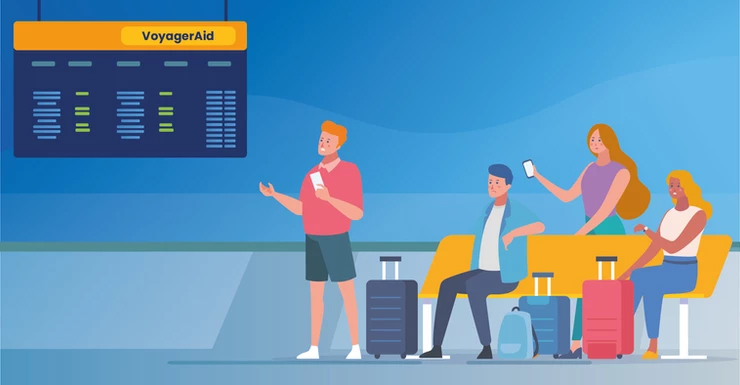Yesterday it was 9/11.
Today it is the novel coronavirus.
Climate change, fuel shortage, geopolitical conflict are all candidates for causing the next major disruption.
While it is hard to predict what will cripple the airline sector next, there is also no excuse to be unprepared.
Real-time notifications
Since delays or cancellations are unpredictable and inevitable, airlines need to automate their responses to disruptions. When an airline learns that a flight will be delayed or canceled, it is recommended to reach out to affected passengers via multiple channels.
Importantly, if there is reason to believe that the automated channel was ineffective for someone, customer support agents can call up that specific individual rather than calling up everyone during a crisis, when high support request volumes are expected.
Proactive communication
Airlines need a system in place that automatically sends a message to people whose flights have been disrupted. If the airline finds that the customer hasn’t responded by replying or rebooking, a customer support agent needs to reach out to ensure that the passenger got the message.
Crucially, the passenger must be notified through all possible channels to prevent him/ her from coming to the airport. One of the most important channels in this regard is the mobile phone, which can be used to track or communicate with the passenger in real-time.
Self-service portal
While an airline needs to call up or email a passenger during a disruption to make sure they rebook or cancel or get to know their flight is delayed, it is equally important to have a self-service portal for the customer to take these actions. Doing so will allow the airline to save time and focus only on customers who haven’t used the self-service portal.
Also, it will prevent customers from feeling a lack of control, which is quite common when someone has to miss a flight through no fault of their own.
Enhanced data exchange
Airlines need to be in close contact with the relevant national air traffic control authorities, baggage handlers, etc. when disruption strikes, so the passenger is not affected. The passenger must be notified of the status of the ticket, luggage, and next similar flight from the beginning so that he/ she can make optimal decisions.
Safety precautions
If the disruption or delay is caused by health issues, such as the coronavirus, passengers may have to sometimes quarantine in places they don’t know. It is recommended that airlines provide extensive insurance coverage and other safety-related ancillaries to make sure that passengers remain safe and financially secure if they are stranded in a less than ideal location due to flight disruption.
Emergency accommodations
If flights are delayed or canceled, and another flight isn’t readily available, passengers need to be provided with food and a temporary shelter. Airlines can partner with various service providers to ensure that their passengers are taken care of when disaster strikes.
Conclusion
There’s no predicting what will hit the airline sector next. But a lot can be done to ensure customers are not left unattended when there is the next major disruption that causes flights to be canceled or delayed.
Having an automated, foolproof system like VoyagerAid in place can go a long way in safeguarding your customers from the fallout from the next flight disruption. Reach us if you want a demo or a free trial.






